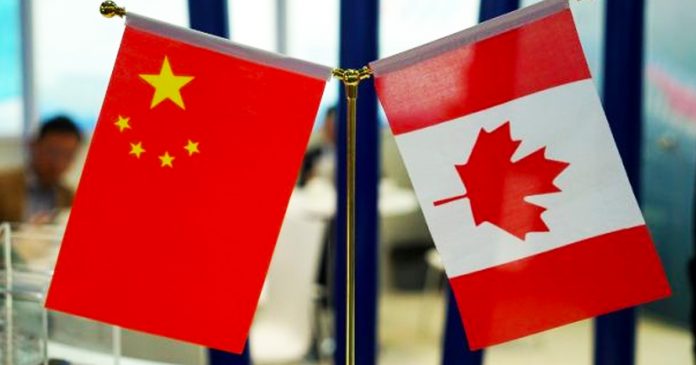Canada has been omitted from China’s list of approved countries for travel tour groups, according to a recent statement from their government.
On August 10, the Chinese Foreign Ministry added an additional 78 countries to their list of countries approved for package travel and group tours; however Canada did not make the cut. The list is used by travel agents to arrange international travel for mainland Chinese citizens.
The removal from the list is China’s response to how, “lately, the Canadian side has repeatedly hyped up the so-called ‘Chinese interference’ and rampant and discriminatory anti-Asian acts and words are rising significantly in Canada,” wrote the public affairs office from the Chinese embassy in Ottawa.
The statement went on to say, “The Chinese government attaches great importance to protecting the safety and legitimate rights of overseas Chinese citizens and wishes they can travel in a safe and friendly environment.”
Chinese tourists are a major player in international tourism, making up 20% of all tourist spending worldwide. In 2019, Chinese international travelers spent $255 billion, according to data from the World Tourism Organization. Of that 20%, the bulk of Chinese tourists travel with tour groups, making up around 60% of tourists.
Prior to the Covid-19 pandemic, Chinese mainland tourists made up the majority of arrivals from the Asia-Pacific region and were at one time Canada’s largest market for money spent by international travelers, according to Destination Canada.
Canada hadn’t always been approved by the Communist Chinese Party (CCP). Liberal industry minister David Emerson attempted to get the CCP to grant Canada “approved destination status” (ADS) in 2005. The federal government switched to the Conservative Party that year however and Prime Minister Stephen Harper said he wouldn’t sacrifice human rights in the name of the “almighty dollar.” Harper eventually secured ADS for Canada as tensions cooled, following a 2009 visit to Beijing.
The economic power of China’s ADS is one way that the CCP can advance their political agenda as it brings other nations enormous revenue in travel spending.
In 2010, the CCP approved group tours in Canada which were then estimated to generate around $100 million annually for Canada’s tourism sector and the country saw about 50,000 tourists coming from China each year.
The 2018 detention of Meng Wanzhou, Huawei’s executive, led to rising tensions between Canada and China, resulting in two Canadians citizens being detained by the CCP in retaliation.
The pandemic which followed shortly thereafter, saw the end of China approving all travel groups for international destinations.
China’s recent list of countries granted ADS included the United Kingdom, Germany and many of Canada’s other Western allies. Even the U.S. was included, despite the diplomatic hardships the two nations have faced in recent years.
Other nations had already been approved in January of this year like Argentina, Cuba, Russia and Thailand. In March, 40 more countries were added to the list including, Brazil, France, Portugal and Nepal. Canada’s opposition parties are calling for Prime Minister Justin Trudeau’s government to take a strong diplomatic stance against the CCP in lieu of allegations that they may have interfered in the 2019 and 2021 elections. There have also been allegations of the CCP harassing Chinese citizen’s living in Canada. In addition to that, the abusive treatment and forced labour of minority groups residing in China like the Uyghurs has brought increased tensions between the two nations.











